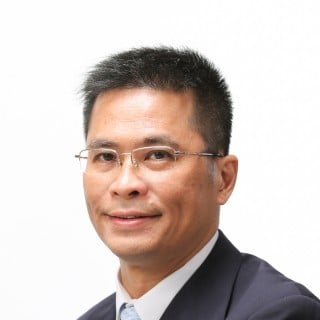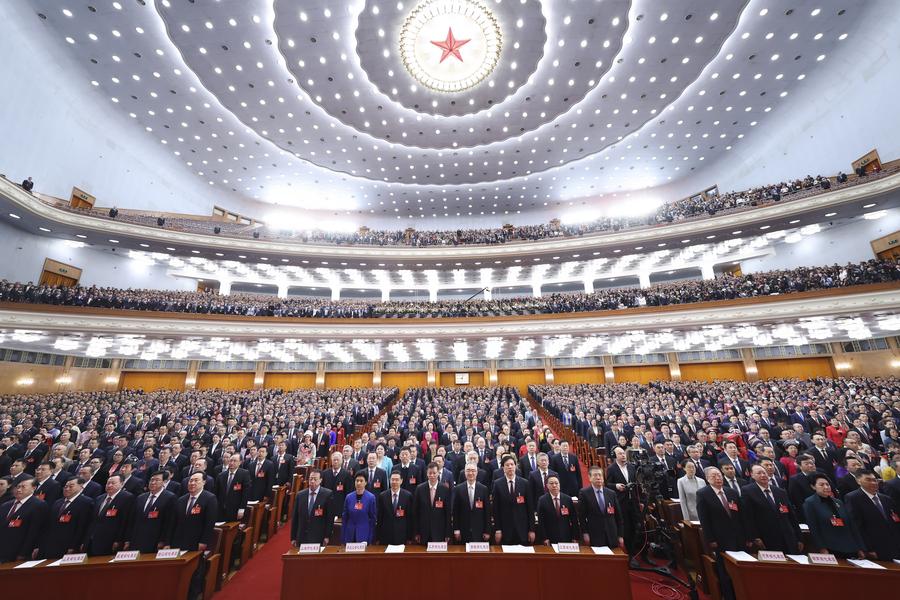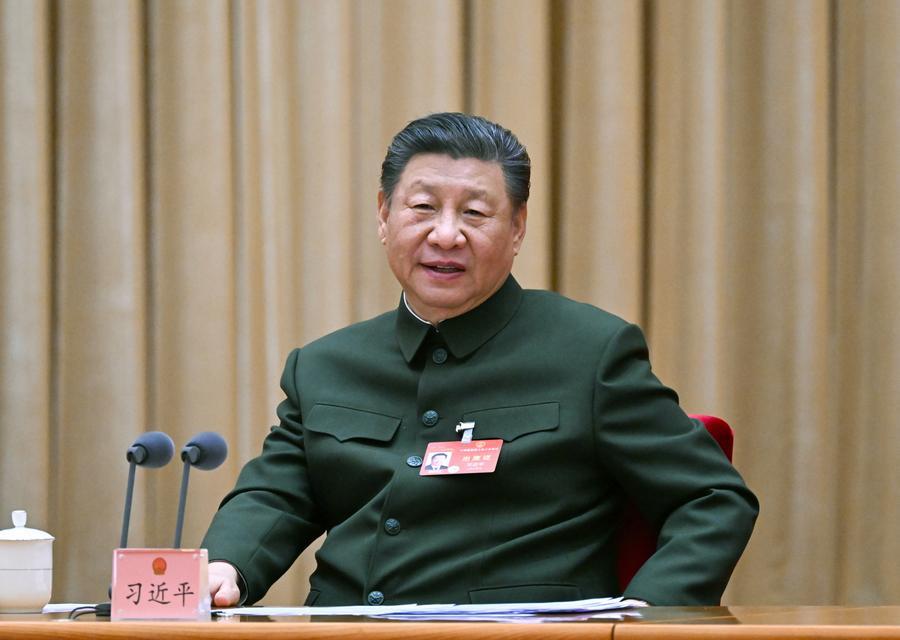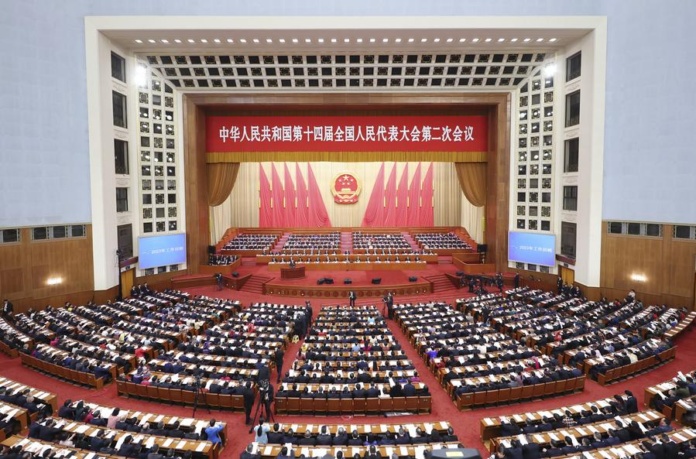Judging from the most recent remarks made by senior Chinese authorities of the Chinese People’s Political Consultative Conference (CPPCC) and the National People’s Congress (NPC), their socio-political and economic implications for Hong Kong and Macau are tremendous.

First and foremost, Wang Huning, the chairman of the CPPCC and a member of the Standing Committee of the Politburo, met the Hong Kong and Macau members of the CPPCC on March 8 and he expressed four expectations: (1) resolutely implementing the “one country, two systems” and integrating Hong Kong and Macau into the developmental blueprint of the Chinese nation; (2) Hong Kong and Macau developing the economy collectively and unitedly, especially as Hong Kong is undergoing a process of transition from “governance to prosperity;” (3) resolving the livelihood issues including employment, housing, elderly case and public health as well as the wellbeing of youth; and (4) CPPCC members actively explaining the advantages of “one country, two systems” to outsiders and the world, especially in face of the attempts by some outsiders to “blacken” the image of “one country, two systems.”
Some Hong Kong and Macau members of the CPPCC said that Wang emphasized the leadership of Party General Secretary Xi Jinping in the formulation of new ideas, new thinking, and new strategies of “one country, two systems” in Hong Kong and Macau, with the ultimate objectives of maintaining long-term prosperity and development. Wang urged the Hong Kong and Macau CPPCC members to have “firm confidence” on both the Chinese nation and the development of Hong Kong and Macau, implementing the spirit of the 20th Party Congress. As such, Wang added, Hong Kong and Macau can and will play their unique functions in the process of propelling the renaissance of the Chinese nation. The Hong Kong and Macau members of the CPPCC are expected to play the key roles of “supporting, implementing, defending” the “one country, two systems,” and to do more in the aspects of resolutely protecting national security, unitedly promoting the development of the two cities, realistically solving the problems of the people’s livelihood, and coherently gathering the consensus in society.
Second, Ding Xuexiang, the leader of the Central Leading Group on Hong Kong and Macau, made several important points in his remarks on Hong Kong and Macau on March 6 during a meeting with CPPCC members from the two special administrative regions. Ding’s comments on Hong Kong and Macau focused on three aspects: (1) Hong Kong needs to maintain its open door to the outside world while playing the role of a “super-connector” and a cooperative actor integrating with the Greater Bay Area through the Northern Metropolis: (2) national security remains the basic foundation of the “one country, two systems” in Hong Kong and Macau while the central government fully supports Hong Kong’s enactment of Article 23 of the Basic Law; (3) the governments of the two special administrative regions must solve the issues of the people’s livelihood, with Hong Kong having the need to avoid “daily politicization” and to focus on the improvement of the wellbeing of ordinary people, while Macau must persist in economic diversification and in its already good work in patriotic education.

Third, Premier Li Qiang’s government report touched on the development of Hong Kong and Macau. He commented that the central government supports Beijing, Tianjin, the Yangtze Delta, and the Greater Bay Area to develop their strengths and potentiality for the sake of propelling high-quality productive forces. At the same time, Hong Kong and Macau must accurately and resolutely implement the “one country, two systems,” the principles of “Hong Kong people ruling Hong Kong” and “Macau people ruling Macau,” and the two places must realize the tenet of “patriotic people” ruling Hong Kong and Macau. Both special administrative regions, according to Li Qiang’s report, must develop their economy and improve the livelihood issues, utilizing their own comparative advantages to actively participate in the construction of the Greater Bay Area and in the national developmental plan of China, thereby ensuring the long-term prosperity of Hong Kong and Macau.
Fourth, the spokesperson of the NPC session, Lou Qianjian, remarked on March 5 that the central government fully supports the Hong Kong government to legislate on Article 23 of the Basic Law, adding that Article 23 has “converging” aspects with the national security law and other existing Hong Kong law, thereby constructing a “perfect national security law system” of protecting China’s national security and ensuring Hong Kong’s long-term stability and safety. Lou also commented that Hong Kong under the “one country, two systems” has unique advantages, including its “perseverance, vitality, potential and special role” in developing the function of “double circulation” under China’s national strategic development. As such, Hong Kong can and will play a pivotal role in being a high-quality platform opening the door to the outside world.
Fifth, Foreign Minister Wang Yi on March 7 talked about Taiwan, saying that those people in the international world who support Taiwan’s separatists would burn themselves and swallow their own bitter pills. Wang quoted the remarks of President Xi Jinping on March 6 that China has expectations on those patriotic people inside and outside Taiwan as they can and will become a united front propelling the process of reunification. Wang Yi also commented that the recent Taiwan elections were only a local election within China, and that the election results cannot change the basic fact that Taiwan is a part of mainland China. Moreover, the election results cannot change the historical trend that Taiwan will certainly return to the motherland. Wang said that all Chinese descendants must support nationalism and support peace and reunification.
During a meeting with the CPPCC women session on March 6, President Xi Jinping said that the Revolutionary Committee of the Chinese Kuomintang should expand its work further to those patriotic people inside and outside Taiwan for the sake of propelling the reunification process and work. Xi also added that cross-strait science, agricultural development, arts and humanities, and youth development should enhance and deepen exchange, cooperation, and integrative process.
Putting together the remarks made by Wang Huning, Ding Xuexiang, Li Qiang, Wang Yi and President Xi Jinping, the socio-economic and political significance for Hong Kong, Macau and Taiwan is prominent.
First, the remarks of Wang Huning, Ding Xuexiang and Li Qiang showed the commonalities of emphasizing the paramount importance of protecting the central government’s national security in both Hong Kong and Macau, and the primacy of accelerating the socio-economic integration of Hong Kong and Macau into not only the Greater Bay Area but also the national strategic plan. Li Qiang’s comment on the central government’s support of Beijing, Tianjin, the Yangtze Delta, and the Greater Bay Area development means that both Hong Kong and Macau have already been incorporated in the macro-level regional economic development of mainland China.
As such, the faster integration of Hong Kong and Macau into the Greater Bay Area is a must. This was why Macau’s economic diversification, especially its development of the cooperation zone with Hengqin, is now regarded as a policy priority. Similarly, the Hong Kong government must accelerate the construction work and developmental plans of the Northern Metropolis. Deeper territorial integration between Hong Kong and Shenzhen on the one hand and between Macau and Hengqin on the other hand will likely be a matter of time, in the form of perhaps using the “first” and “second” lines of customs perhaps as movable “borders” in the dynamic process of cross-boundary transformations.
Second, the central authorities have stressed the importance of depoliticization in Hong Kong and the imperative of improving the people’s livelihood in the two cities. This mentality, from a Marxist analytical perspective, reflects how the central authorities see the superstructure (ideas, institutions, law, education) of Hong Kong and Macau: the superstructure of Hong Kong must be reformed, especially, as Lou said publicly, the imperative of enacting the Article 23 legislation so that there is and will be a comprehensive “national security legal system” protective of China’s national security. While Ding Xuexiang praised Macau’s patriotic education, Hong Kong’s patriotic education must persist in its current process of deepening reforms. Institutionally, Hong Kong’s new Legislative Council elections and District Council elections were already held for the sake of achieving the objective of patriotic people ruling Hong Kong. While the legal and institutional as well as education superstructure of Hong Kong necessitated reforms, Macau’s superstructure witnessed minor adjustment in the form of amending the content of the national security legislation which had long been enacted in 2009.
Third, while the superstructure of the two places necessitated reforms, the economic base of both Hong Kong and Macau are consolidated further. With the central government’s strong support, the Greater Bay Area presents a new window of opportunities for both cities to develop their information technology, utilizing the strengths of the mainland to develop its economy and strategic industries (tourism and information technology in Hong Kong, gaming industry and cultural tourism in Macau). Ding Xuexiang’s comment on Hong Kong as a “super-connector” was an important remark pointing to how central authorities see Hong Kong as a new window for China’s new phase of economic modernization. In other words, Hong Kong can, as Lou Qianjian says, still be an open-door platform for China to deepen the nation’s economic development through the attraction of foreign investment and businesses. If “double circulation” refers to not only the stimulation of domestic consumption but also external trade and interactions, then Hong Kong is now repositioned as China’s new window of accelerating domestic consumption in the Greater Bay Area and of outreaching to other countries through China’s Belt and Road scheme. Macau, on the other hand, is China’s important platform and magnet attracting the investment and businesses from Portuguese-speaking countries. In short, the economic base of both Hong Kong and Macau is fully utilized, and its potential is to be fully maximized in the stage of Chinese renaissance.

Fourth, perhaps the most interesting remarks about Taiwan came from President Xi Jinping, who emphasized the expansion of patriotic work and the deepening of cross-strait exchanges in science, arts and humanities, agriculture, and youth development. Given that Fujian has already established a special district enhancing its integration work with Taiwan, it can be anticipated that socio-cultural integration with Taiwan may proceed much faster than conventional wisdom assumes. The obstacle comes from the ruling authorities in Taiwan, as implied by Wang Yi and as evidenced in the most recent tragedy of the capsized fishing boat in which two mainland fishermen died near Kinmen. From the mainland official perspective, the Taiwan side must apologize to the family members of the two victims, but so far, an impasse persists. Moreover, the mainland authorities appear to adopt a wait-and-see attitude toward the remarks made by William Lai during his forthcoming inauguration as the next president of Taiwan, as commented by Li Yihu, a mainland Taiwan expert from Peking University’s Institute for Global Cooperation and Understanding, on March 8.
In conclusion, analysing the important remarks made by the central authorities on Hong Kong, Macau, and Taiwan, we can identify the new strategic repositioning of both Hong Kong and Macau in the current process of developing the Chinese national renaissance. In accordance with the spirit of the 20th Party Congress, Hong Kong and Macau are expected to fully protect the central government’s national security. As such, Hong Kong is now accelerating the process of legislating on Article 23 of the Basic Law – an essential process of constructing a comprehensive national security legal regime for the special administrative region. Hong Kong is playing the role of a “super-connector” facilitating the “dual circulation” in China and contributing to the regional political economy of development along the Beijing-Tianjin-Yangtze Delta-Greater Bay Area axis. On the other hand, Macau is expected to accelerate its economic diversification by using Hengqin and the related cooperation zone as not only its expanding physical space but also a launching pad for new industries away from its traditional heavy reliance on casino capitalism. Yet, both Hong Kong and Macau are expected to be more “socialist” than before, dealing with the people’s livelihood in a far more effective manner while depoliticizing the two cities as much as possible. The CPPCC and NPC sessions in March 2024 have already revealed the central government’s strategic repositioning of Hong Kong and Macau while adopting a wait-and-see attitude toward the Taiwan authorities, even though the mainland is keen to expand the patriotic front to broaden and deepen cross-strait interactions in the areas of arts, humanities, science, agricultural and youth development.
*Sonny Shiu-Hing Lo is a political scientist, veteran commentator, and author of dozens of books and academic articles on Hong Kong, Macau, and Greater China




















